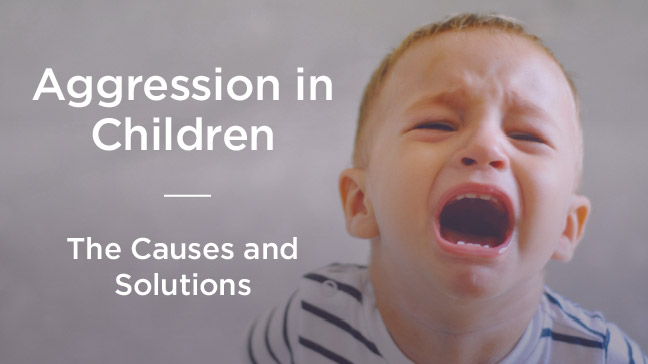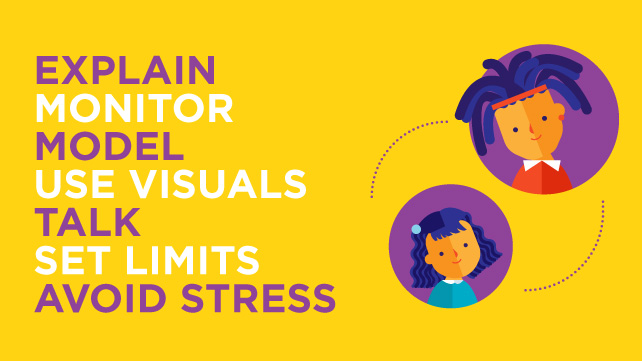
When children display aggressive behavior, it can be both alarming and challenging for parents, teachers, and other caregivers. But children aren’t born aggressive; these behaviors come from a variety of external causes.
The good news is that even after children act aggressively, there are still ways to help them change their behavior and get back on track.
Read on to find out what causes aggression in children and what you can do to resolve it.
“A lot of aggression comes from children who feel out of control and disconnected from their feelings.” Dr. Gail Gross, family and child development expert.
What is Aggressive Behavior?
Acts of aggression are defined as forceful or hostile acts that are meant to frighten or dominate others. In children, these acts can take several forms, depending on the child’s age and environment.
Infants and toddlers show aggression by:
- crying
- biting
- hitting
School-aged children show aggression by:
- being argumentative
- hitting
- pinching
- threatening
- bullying
- being generally disruptive
- displaying defiant behavior in school
What Causes It?
Dr. Gail Gross, Ph.D., Ed.D., M.Ed., a nationally recognized family and child development expert, says: “There are many reasons for aggressive behavior in children, some of which have to do with things that occur even before they’re born.”
She explains that if a mother is in an abusive situation or very stressed during her pregnancy, she may be producing more of the stress hormone, cortisol. This might affect her child’s behavior, even from birth.
Other factors that contribute to aggression in children are their family life, community, and cultural experiences. According to Dr. Gross, role modeling is a huge factor because children take their cues from their parents.
Children who are abused or raised by parents who have poor parenting styles are more likely to behave aggressively because they lack the model for appropriate behavior and coping skills.
For example, authoritarian parents often punish children for not following rules. The parent doesn’t feel that he has to openly communicate with his child, but instead shows the image of being in charge. As a result, the child often acts out and behaves poorly when away from the parent.
In addition, attachments that children form in early childhood to their parents are very important to their development. Neglect by parents during these critical years can cause changes in brain patterns, which can lead to behavioral problems later.
Children also learn from other adults and children in their community. If these examples are positive and nurturing, kids can benefit.
Community and cultural environments, like inner city neighborhoods where kids may witness violence regularly, can also contribute to aggressive behaviors. Research in the Journal of the Canadian Academy of Child and Adolescent Psychiatry shows that children living in “urban war zones” frequently lack proper adult role models and caregivers to teach self-control and self-regulation.
How Can It Be Diagnosed?
Dr. Gross recommends that parents start by making an appointment with their pediatrician. Talk to your child’s doctor about their behavior. The doctor might refer you to a neurologist to check for any abnormalities or signs of brain injury or trauma.
If there is no physical cause behind the aggression, the next step is an evaluation by a psychiatrist or other trained therapist. A professional can help determine what emotional and environmental factors are at work.
How Is It Treated?
“A lot of aggression comes from children who feel out of control and disconnected from their feelings. You want to resensitize them to who they are and how their behavior affects others. Teach your child how to step back and calm themselves,” Dr. Gross explains.
Treatment for childhood aggression generally involves creating a plan with a licensed therapist. You and your child will meet with the therapist, and will likely be given tools to use at home. This is an ongoing process that can be different for each child, so you’ll need to have patience.
Dr. Gross emphasizes using positive reinforcement and avoiding negative reinforcement, saying, “Reward nonaggressive behavior consistently.”
Here are some positive ways to help children redirect their behavior.

- Explain how you’re feeling and ask how your child is feeling.
- Monitor exposure to aggressive television shows.
- Model the behavior you want to see in your child.
- Use visuals, like a chart, to measure good behaviors.
- Talk to your child about issues in a neutral environment, like the kitchen, instead of in a bedroom where the child may feel attacked in their own space.
- Set limits, but avoid being too structured or too relaxed with rules.
- Avoid stressful situations. For example, if your child gets aggressive in certain settings, choose different activities.
- Tell your child what type of behavior you want to see before going into a new situation.
The Takeaway
“Often when children act out aggressively, they don’t realize how their behavior affects others. You have to point it out to them. Be clear and tell them what you expect,” says Dr. Gross.
If childhood aggression is ignored and not treated properly, it can lead to issues in adulthood, including the development of mental illness. But with guidance from a mental health professional and consistent work at home, you can help your child recognize aggressive behaviors and learn to form healthier responses.

